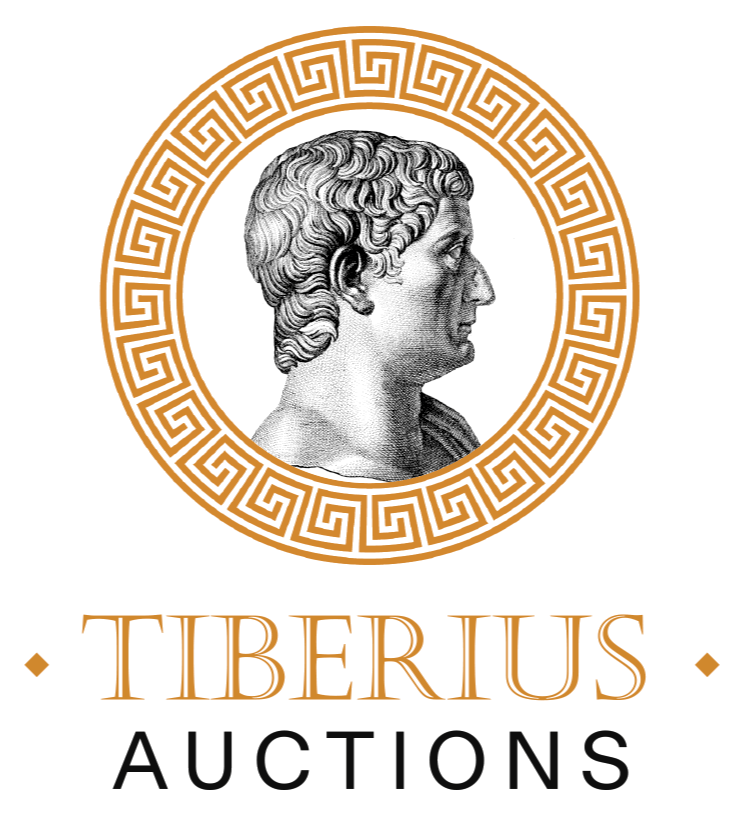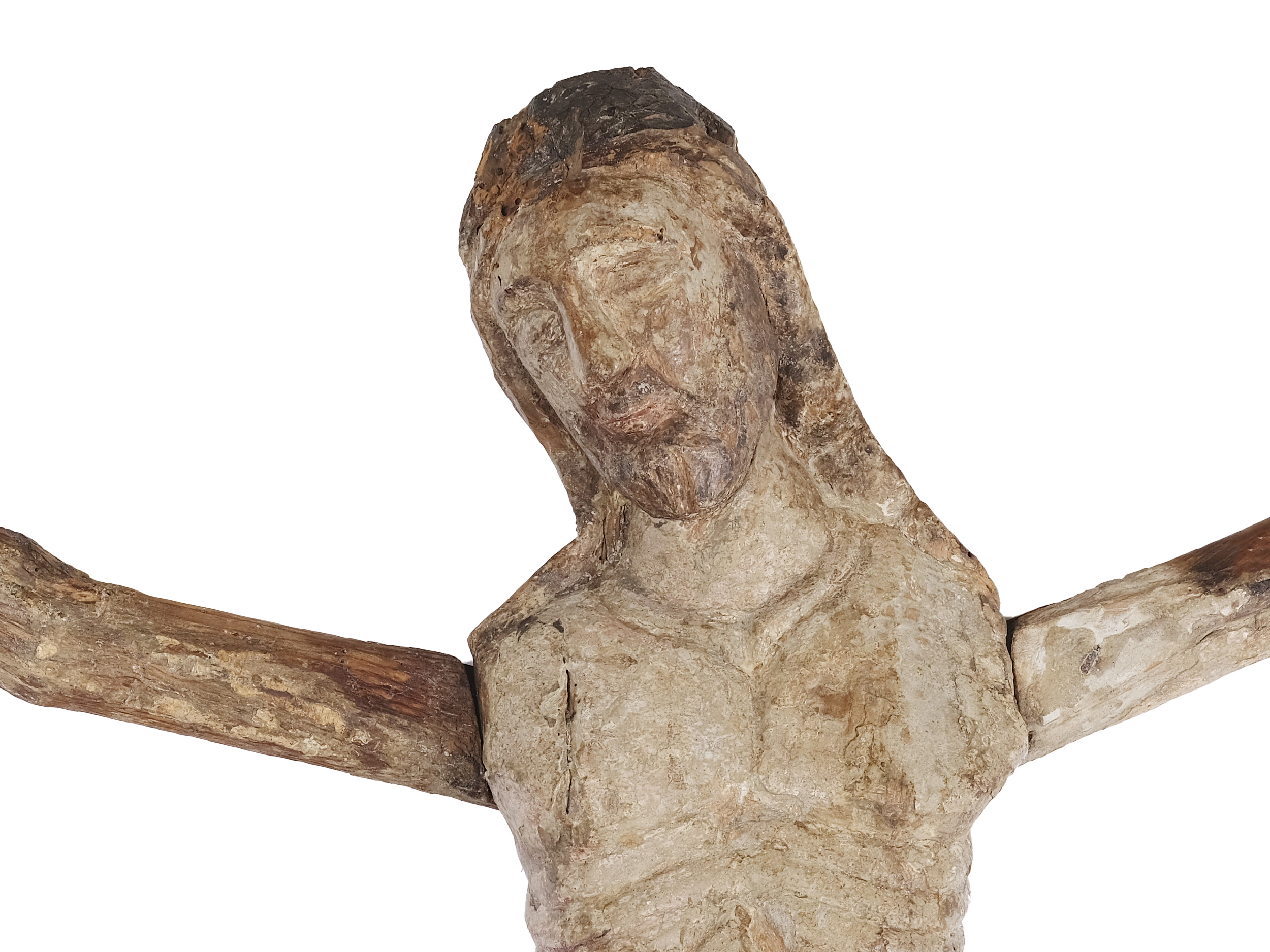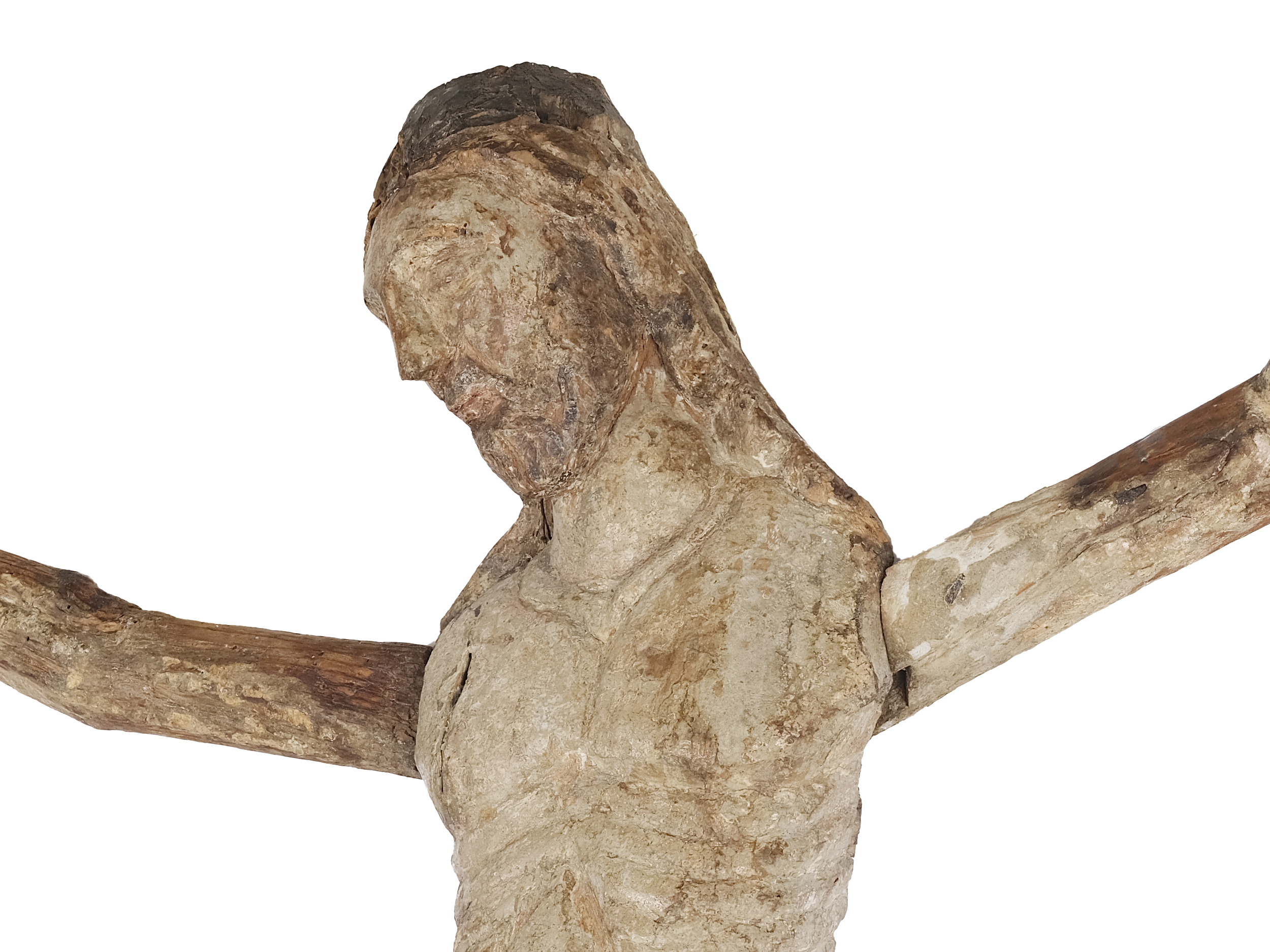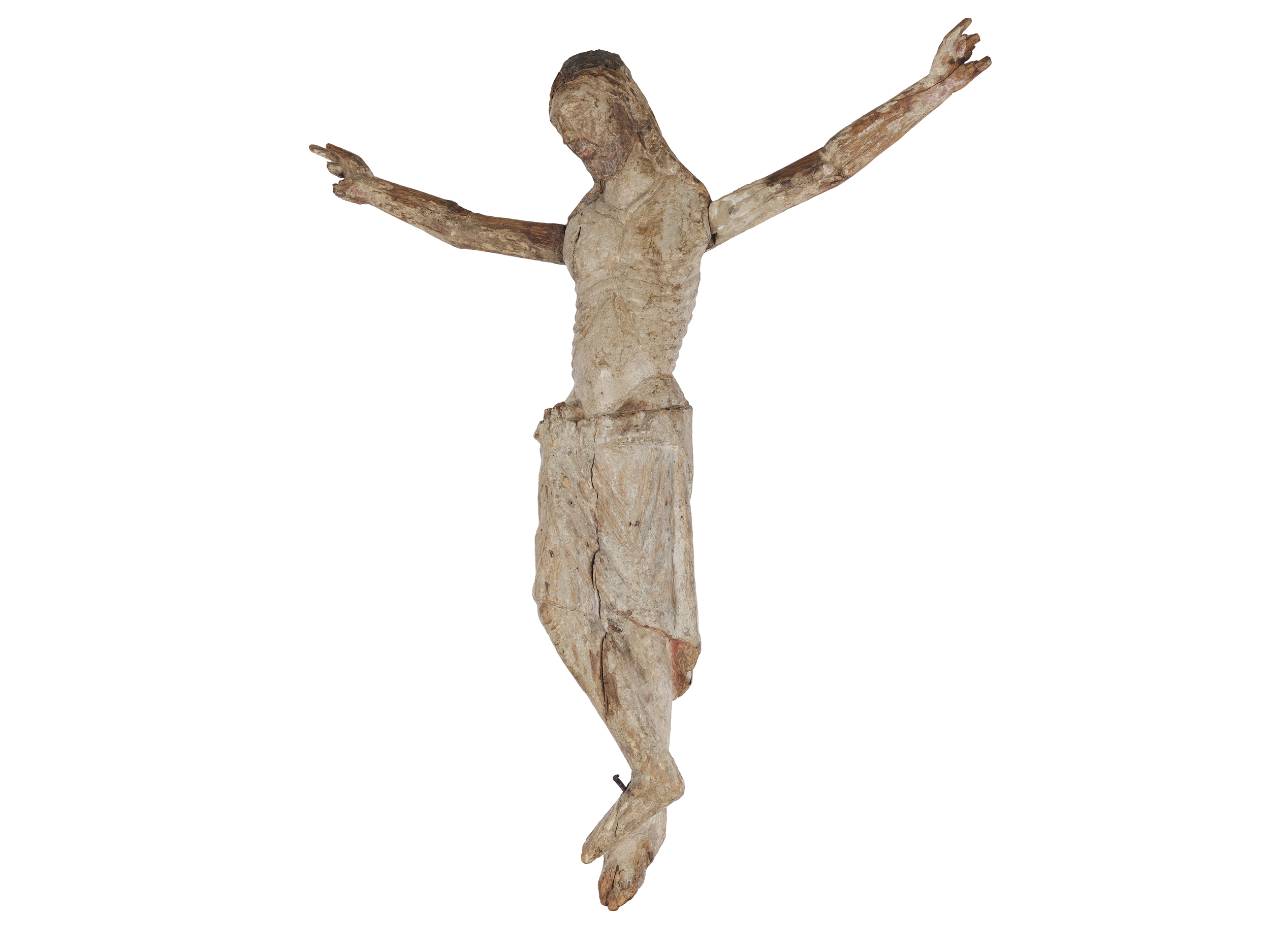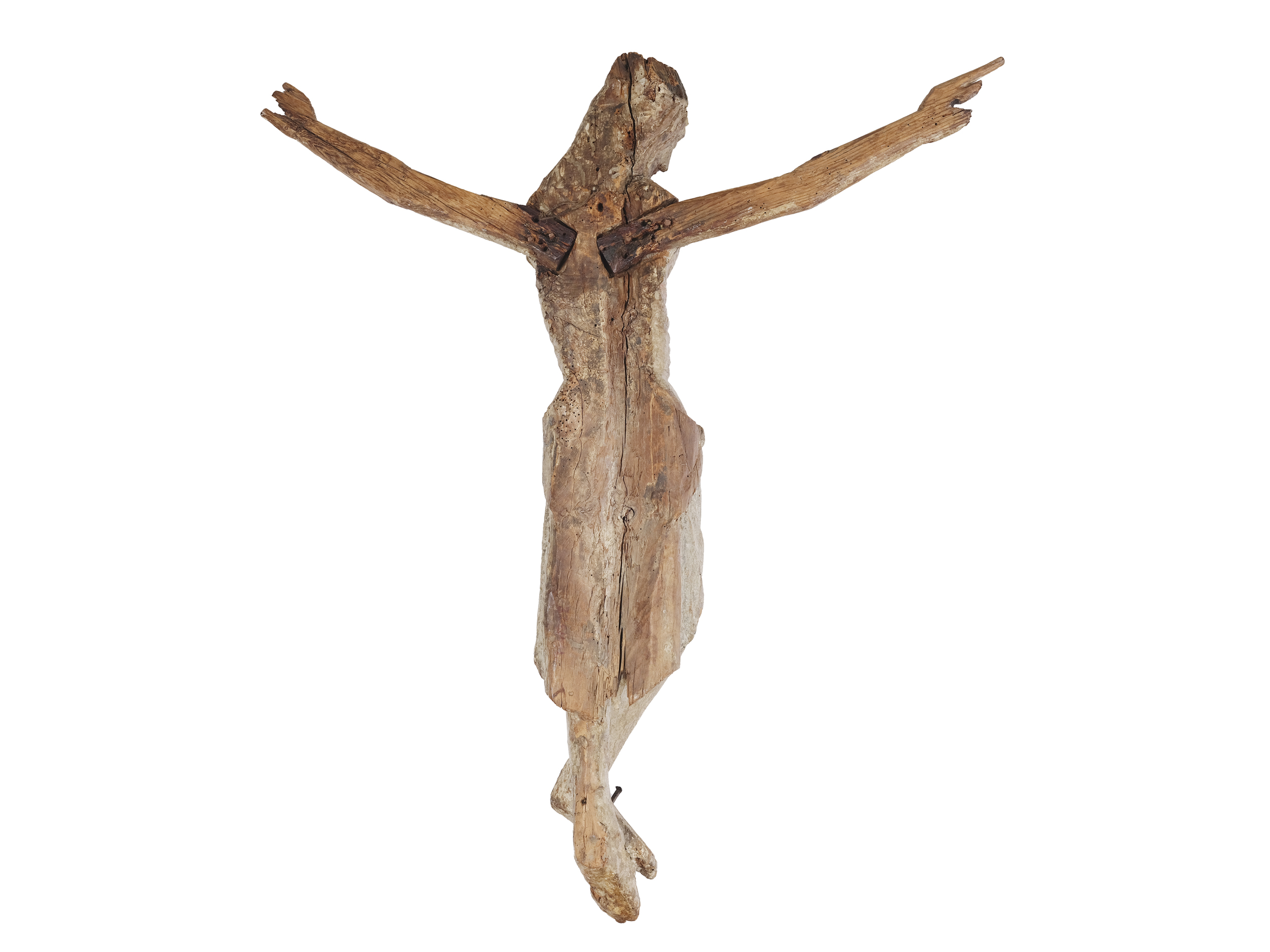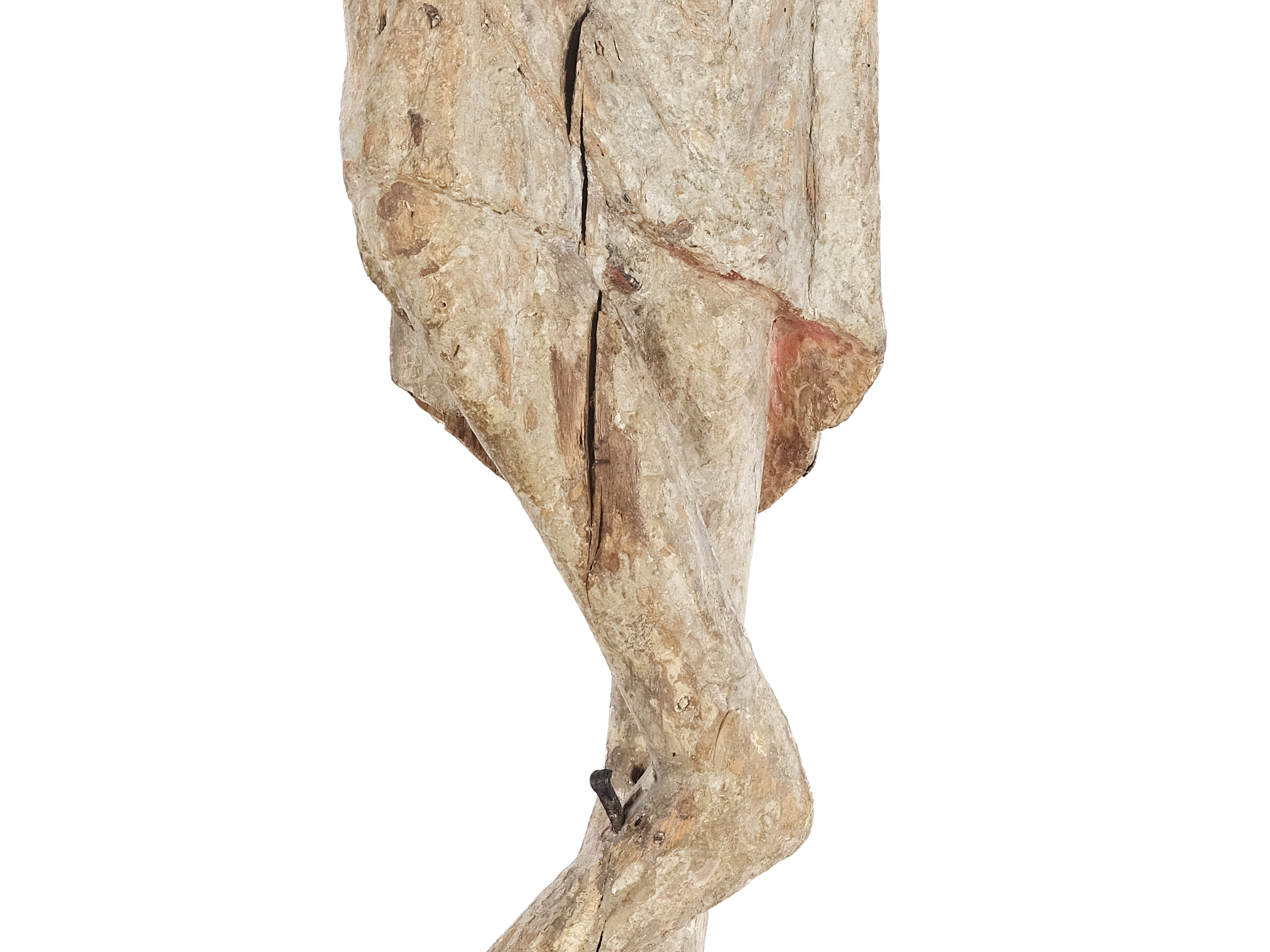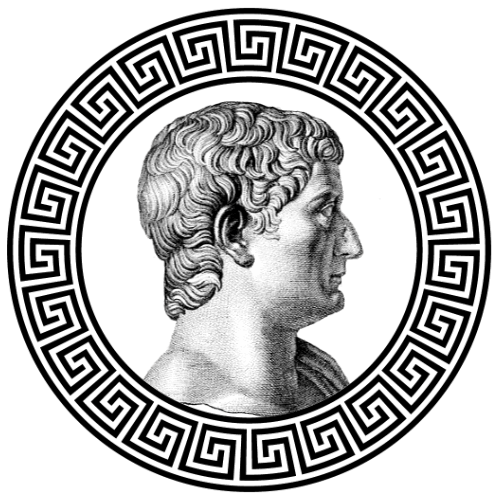Museum Corpus Christi
14th Tiberius Auction
Museum Corpus Christi
Starting price:
€ 8.000
- USD: 8.384 $
- GBP: 6.621 £
Estimated price: € 15.000 / 30.000
| from | to | bid increment |
|---|---|---|
| 0 € | 99 € | 5 € |
| 100 € | 199 € | 10 € |
| 200 € | 399 € | 20 € |
| 400 € | 999 € | 50 € |
| 1.000 € | 1.999 € | 100 € |
| 2.000 € | 3.999 € | 200 € |
| 4.000 € | 9.999 € | 500 € |
| 10.000 € | 19.999 € | 1.000 € |
| 20.000 € | 39.999 € | 2.000 € |
| 40.000 € | ∞ | 5.000 € |
Museum Corpus Christi
Spain/Catalonia or Asturias
Around 1250
Corpus hardwood, arms coniferous wood
Remains of the original polychromy
Height 109.5 cm, width 98 cm
The crucified figure with attached arms was made around 1250 in Spain, probably in Catalonia, and measures 109.5 x 98 cm. Jesus hangs frozen from the cross in a faint S-shape; his head is tilted to one side and his eyes are closed. The emaciated body reveals the ribcage under a thin layer of skin and the dramatic, V-shaped notched abdomen. The low-lying perizonium is knotted at the side and hangs down to the knees. The feet are crossed in a three-nail type, with the stylized bent right foot almost expressing a moment of rigor mortis, underlining Jesus’ previous ordeal.
Corpus Christi types of this kind were widespread in medieval Spain.
While majestically erect, triumphant depictions of the crucifixion were popular until the end of the 12th century, a new depiction convention of the resigned, introspective and dramatic Christ developed after 1200, emphasizing his humanity and suffering. The posture of the tilted head, the arms bent upwards, the V-shaped belly with strongly translucent ribs above it, the accentuated pelvic area, the long loincloth with a prominent knot at the hip, as well as the stylized crossed feet are clear characteristics of Spanish crucifixion depictions from Catalonia in the mid-13th century. The latter feature in particular – the feet lying on top of each other, with the right foot angled over the left in an unnaturally rigid position – appears to be an impressive characteristic of this type. The closest comparative example is the Catalan Crucified Christ from the church of Santa Maria dels Turers in Banyoles in north-eastern Spain (Art Institute Chicago, 1926.120). This Christ was hung between the choir and the nave, where the congregation was located; it was thus a focal point for the faithful who witnessed this New Testament event.
